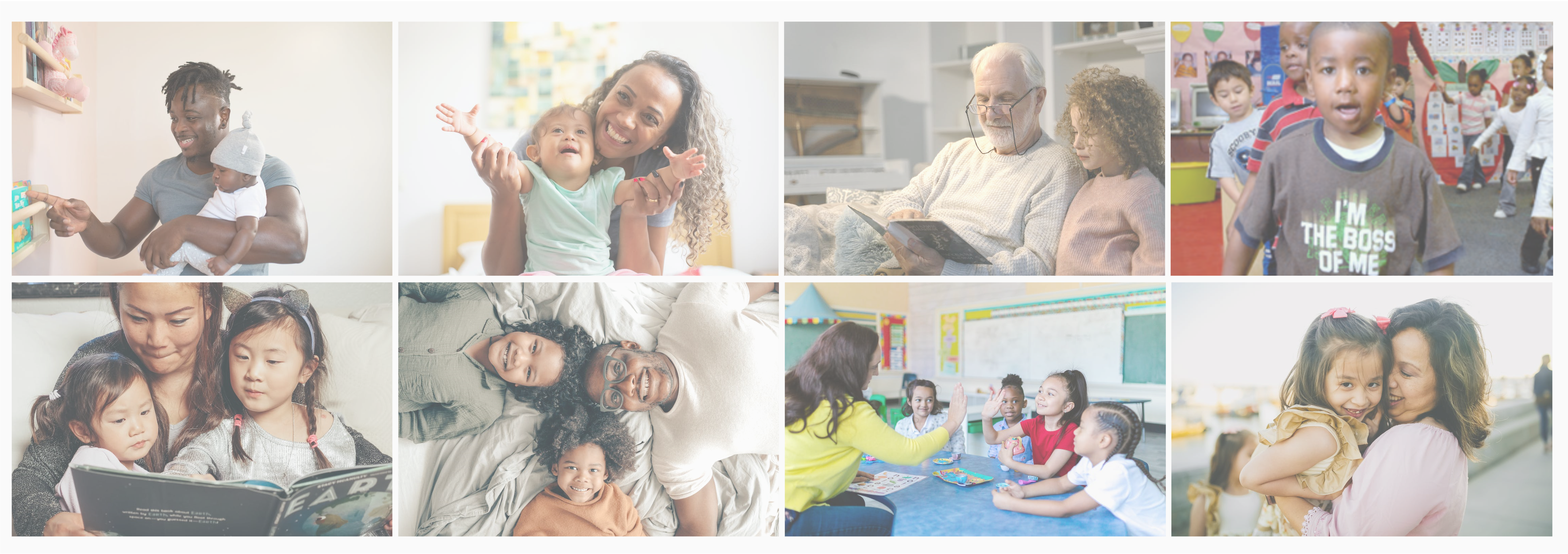The Parent Satisfaction with Educational Experiences (PSEE) Scale
The Parent Satisfaction with Educational Experiences (PSEE) scale is a multi-dimensional scale of parent satisfaction with various aspects of their child’s early education program. Informed by the empirical literature on parent involvement and home-school partnerships, the PSEE uses parent or primary caregiver reports to assess parent satisfaction for children in preschool, kindergarten, and 1st grade programs. It reflects different levels of parent contacts across teacher, classroom, and school contexts.
Rationale
Research has documented the value of parent involvement in early childhood education and its relation to positive outcomes for children (Southwest Educational Development Laboratory [SEDL], 2002, 2004; U.S. Department of Education, 1994, 2001). Empirical findings underscoring the overall benefits of parent involvement have resulted in national mandates for parent involvement in schools and for the development of home-school partnerships. School administrators can capitalize on such mandates by creating opportunities for bi-directional communication between schools and families to foster genuine parent involvement. To realize this opportunity, administrators need culturally sensitive and practical means to determine parental satisfaction with various aspects of their school contact. Ideally, a measurement tool developed for this purpose should be created in partnership with parents and educators (Christenson & Sheridan, 2001). This will also help to ensure a successful implementation of the tool. Additionally, to foster large-scale use across a diverse population of parents, this assessment should be relatively brief and easy to complete. The Parent Satisfaction with Educational Experiences (PSEE) scale was developed in response to these needs, and serves to assess parent satisfaction across multiple contexts in early childhood education programs.
There are three dimensions of the PSEE:
- Teacher Contact Experiences. This dimension consists of teacher-related events, such as telephone conversations with the teacher, notes sent home, and conferences with the teacher about the child’s learning or behavior.
- Classroom Contact Experiences. This dimension is defined by parent contact with the classroom setting, including involvement in planning classroom activities and volunteering in the classroom.
- School Contact Experiences. This dimension describes situations in the global school setting, including parent workshops or training opportunities offered at the school, contact with the school principal or other administrators, and support and encouragement at the school for the family’s language and culture.
Use, Qualifications, and Limitations
The PSEE was developed for use with parents or primary caregivers of children in preschool, kindergarten, and 1st grade programs. It is to be used for research purposes only and should not be used for diagnostic or other testing purposes. This measure was developed and validated using a target population of children in a large urban school district, which serves a large percentage of low-income, minority children. Use of these norms with a very different population is not recommended, in keeping with the national standards for educational and psychological testing (Standard 12.3, AERA, APA, & NCME, 1999).
